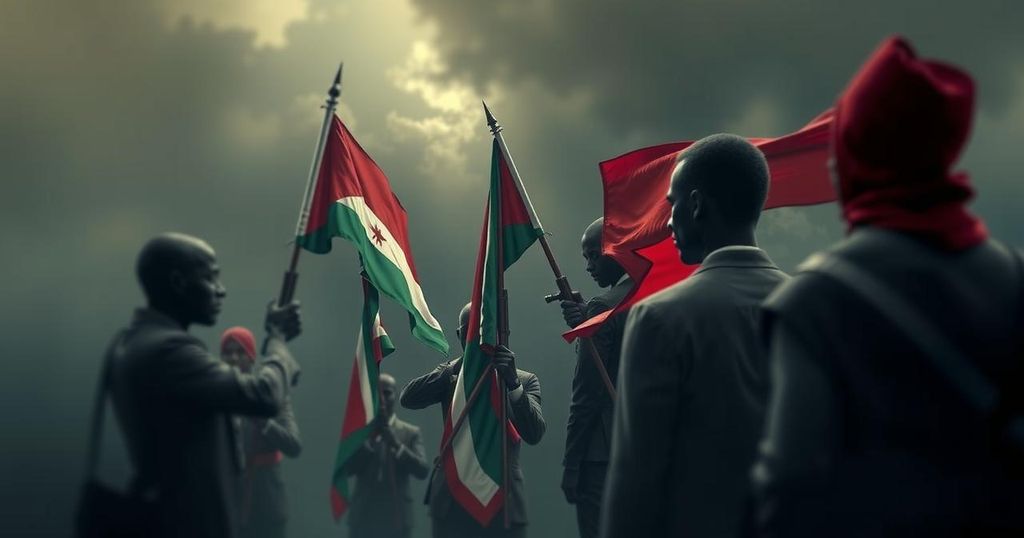The United Nations witnessed a heated confrontation after Russia vetoed a UK-backed resolution intended to enforce a ceasefire in Sudan, where a 19-month civil war has led to massive displacement and a dire humanitarian crisis. The UK and US leaders condemned Russia’s actions, while Sudan’s representatives indicated unaddressed clauses in the draft resolution. The veto signifies ongoing geopolitical tensions impacting humanitarian efforts in Sudan.
In an alarming development at the United Nations, Russia exercised its veto power against a draft resolution proposed by the United Kingdom that sought to establish a ceasefire in Sudan. British Foreign Secretary David Lammy condemned this action as a “disgrace,” highlighting the ongoing humanitarian crisis that has resulted in the deaths of tens of thousands and displaced over 11 million individuals. The conflict, which is now 19 months in duration, primarily pits Sudan’s military against the Rapid Support Forces (RSF) in a struggle for power that began in April of the previous year.
The resolution—backed by the UK and Sierra Leone—urged an immediate cessation of hostilities and the commencement of negotiations for a national ceasefire, alongside calls for both factions to honor previous agreements to protect civilians. However, Sudan’s representative at the UN indicated dissatisfaction with the draft, citing omitted clauses that condemned external support for RSF and classified the RSF as a terrorist entity. Russia’s Deputy Ambassador, Dmitry Polyanskiy, asserted that the UK was disregarding Sudanese sovereignty while claiming their attempt at a resolution would only exacerbate the crisis.
The veto came despite approval from the remaining 14 member states of the Security Council, showcasing the contentious geopolitical dynamics at play. United States Ambassador Linda Thomas-Greenfield criticized Russia for impeding efforts to address the humanitarian catastrophe in Sudan, suggesting that Russia was manipulating the situation to further its political interests. As Sudanese activists continue to express frustration over the UN’s slow response, the urgency for a resolution remains critical amid accusations of human rights violations by both the army and RSF that could amount to war crimes.
The ongoing civil war in Sudan unfolded in April 2022, characterized by intense conflict between the national army and the RSF. As fighting escalated over power dynamics, civilian casualties and a humanitarian crisis ensued—marking it as one of the gravest situations globally, with aid agencies scrambling to address the consequences. The United Nations Security Council plays a pivotal role in international peacekeeping but faces challenges, particularly when member states like Russia assert their veto power, complicating the implementation of humanitarian interventions and resolutions. Critical voices from both the UK and the US underline these growing tensions and the necessity for immediate action to alleviate the suffering in Sudan.
The recent veto by Russia at the UN over a proposed ceasefire in Sudan underscores the complexities of international diplomacy in addressing the ongoing humanitarian crisis in the region. With tens of thousands of lives lost and millions displaced, the situation demands urgent attention. The refusal to approve the resolution reflects both geopolitical strategies and the challenges faced by the international community in responding effectively to human suffering. Continued dialogue and cooperation among nations are imperative to forge a path toward peace in Sudan.
Original Source: www.bbc.co.uk







